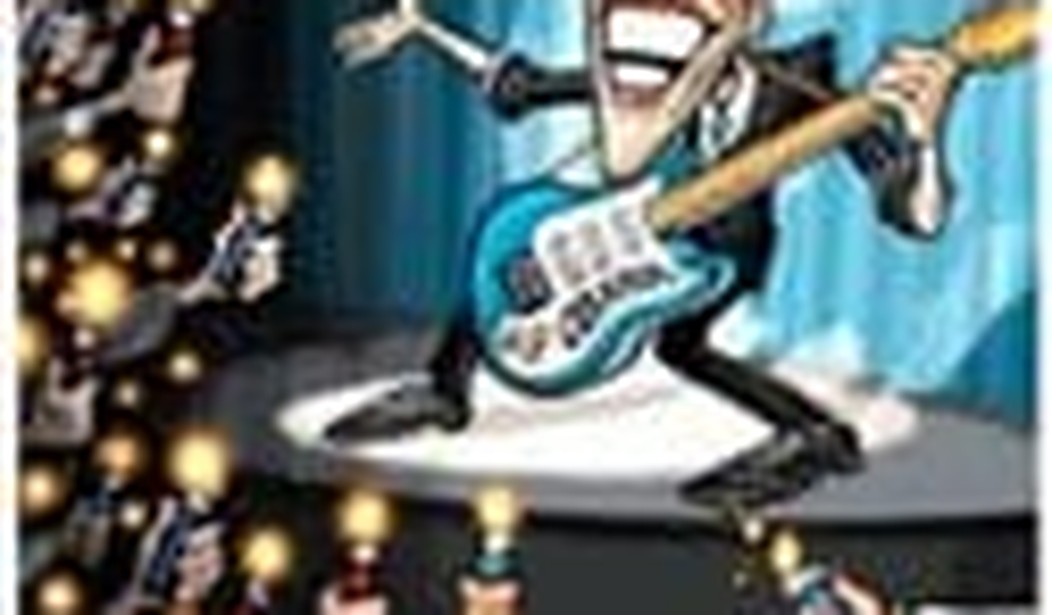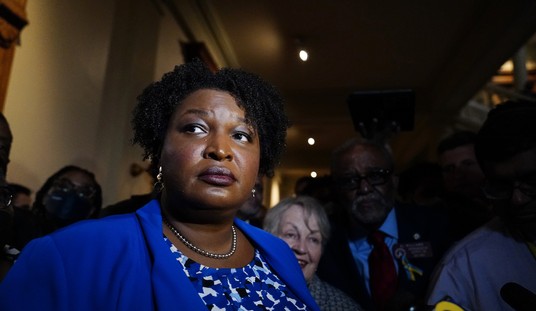I once read a passage by a Catholic priest explaining how people get hooked into new religious movements: First, the would-be church member was brought into a welcoming environment with upbeat music and palpable excitement. The person would accept their new faith easily as the flock of church loyalists seemed to provide sunny hope and instant friendship, filling some sort of void.
As time goes by and life’s normal ups and downs hit, then comes disillusionment when the member realizes that their faith is based on that emotional high, a high they’re not able to sustain 24-7 or while away from the group.
After disillusionment and the breakup, the onetime convert is back to square one.
As we’ve watched support for Barack Obama evolve from an ambitious challenge of Hillary Clinton to messianic mania, we’ve seen his followers increasingly less concerned with talking points on foreign policy, etc., than his ability to whip a crowd into a feel-good frenzy. We have voters inspired by the tone in which Obama speaks, how his skin color in the White House would make history, and how Michelle Obama thinks the emotional tidal wave is a step forward for America: “For the first time in my adult lifetime, I am really proud of my country.”
Yet for emotion, on the left or right, to be the deciding factor in such a key election puts the United States in a very precarious spot.
In last week’s Wall Street Journal, Stephen Hayes opined that Republicans busy criticizing the Obama campaign for leaning on hopeful rhetoric need to remember that back in the day Ronald Reagan was criticized for being too reliant on uplifting speeches.
“The assumption behind much of this criticism is that because Mr. Obama gives a good speech he cannot do substance,” Hayes wrote. “This is wrong. Mr. Obama has done well in most of the Democratic debates because he has consistently shown himself able to think on his feet.”
Actually, he’s done well because Clinton consistently gets nailed with the hard questions first.
Then, as he did with the question on Dmitry Medvedev in last week’s Ohio MSNBC debate, he can mold his answer off hers (though skipping that apparently cumbersome pronunciation of his name). But the supposition that this makes Obama’s rhetoric passable to run the White House is off-base.
Reagan fought the Cold War until the bitter end, driven by the firm belief that a hopeful future included the fall of the Evil Empire. Obama cites Reagan’s meetings with Mikhail Gorbachev as justification for unconditional meetings with avowed anti-American leaders such as Mahmoud Ahmadinejad, Hugo Chavez, and Kim Jung-Il.
But whereas Reagan thundered “Tear down this wall!” and brought down the Soviet Union not through just talking but by means of the arms race, the likelihood is great that Obama’s kaffeeklatsches will be nothing more than propaganda shows on state-run media.
Obama has already stressed that China is a “competitor” instead of an enemy, leaving serious doubts about what he’d do in the event of a Chinese invasion of Taiwan (and, thus, increasing the likelihood of its occurrence should an Obama presidency begin — after all, totalitarian regimes tend to back down in the face of superpowers known for actually taking action.)
“Mr. Obama has regularly fought (Clinton) to a draw by displaying a grasp of the details that rivals hers, and talking about it in ways Americans can understand,” Hayes also wrote.
And that, sadly, may require very little in terms of hard policy and crucial details. In a 2007 Pew survey on current affairs knowledge, only 36 percent of Americans surveyed could identify the president of Russia and only 69 percent could name our current vice president. These are the same people who will be voting for the next president.
Emotion and reason have to be inextricably linked in casting a ballot.
Know thy world well, candidates and voters, or put the country at risk.
That’s not in the form of rhetoric to “scare up votes,” as Obama chided Clinton’s 3 a.m. phone call ad; that’s the reality we should have understood would be with us for a long time to come.
For all the “politics of fear” accusations, emotion is precisely what Obama’s based his campaign on — hard-and-fast policy talk supplanted by pep rallies to pitch vague, unspecified “change” and ride a wave of excitement to the White House. He’s not a great unifier; he was 2007’s most liberal senator. Unifiers actually have a history of reaching across the aisle, or at least reaching out to a challenger on the floor at the State of the Union.
Or, as Clinton put it in the run-up to Tuesday’s primaries, “He wavers from seeming to believe that mediation and meetings without preconditions can solve the world’s intractable problems, to advocating rash, unilateral military action without cooperation from our allies in the most sensitive region of the world.”
If Obama’s doctrine was clearly laid out on the table, not obscured by fluffy rhetoric and rock-star orations, would he really have so many converts? And if he is voted into the White House, will it take a damning crisis for the disillusionment to take hold?
Bridget Johnson is a columnist at the Los Angeles Daily News.









Join the conversation as a VIP Member